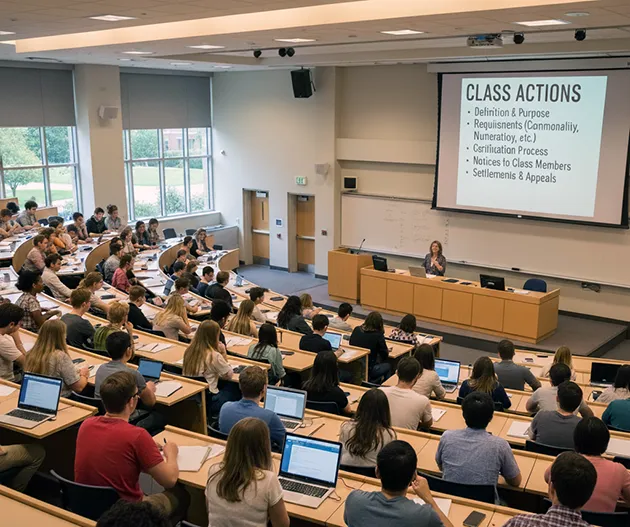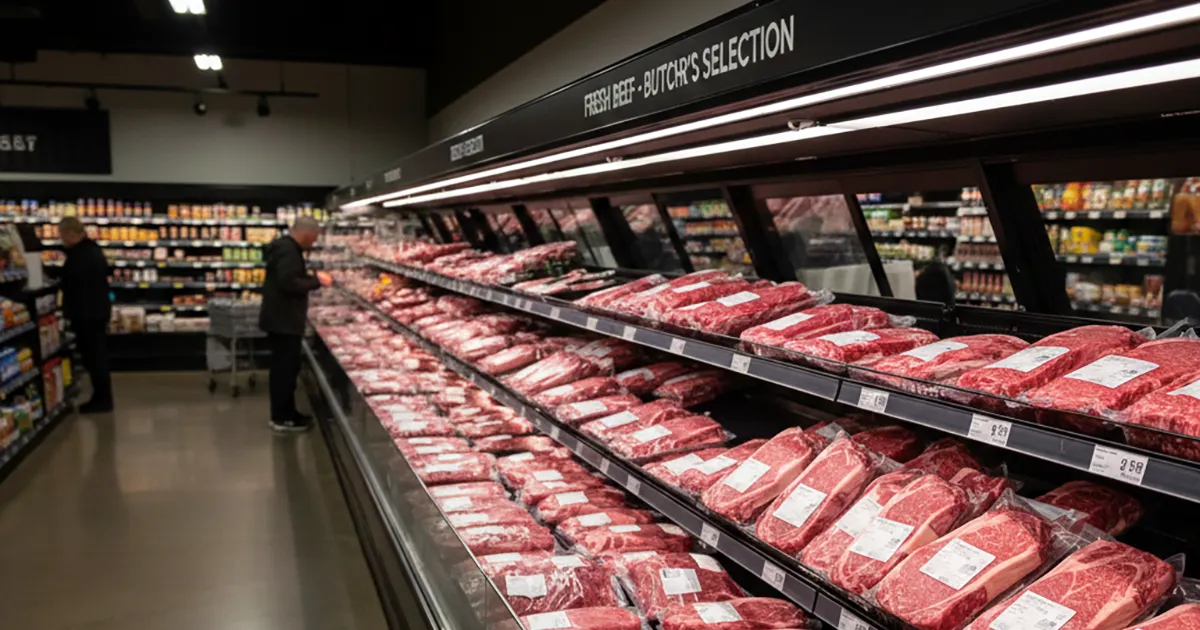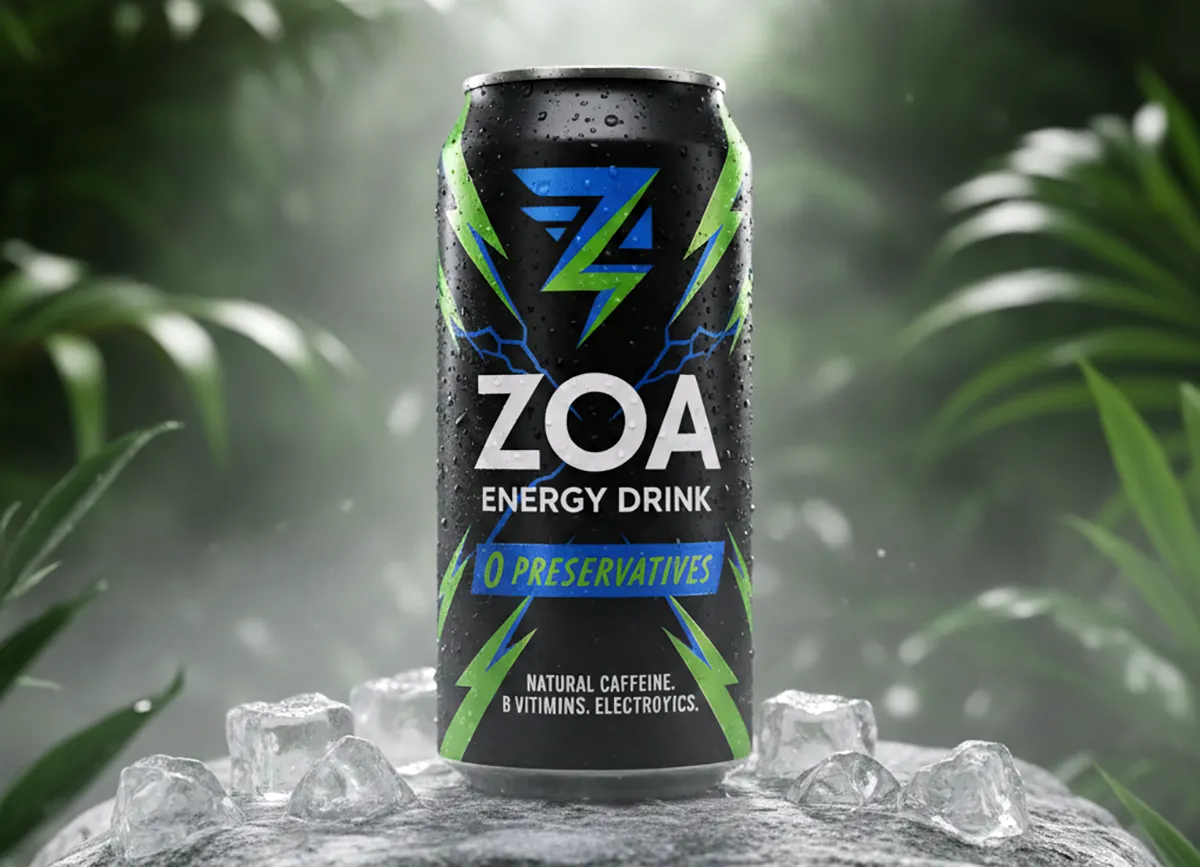Was Your College a Rip-Off? This $6 Billion Settlement Just Gave Borrowers a Lucky Break
By Steve Levine

Published: November 14, 2025
Status: Settlement Approved
Payout Award: Varies
Proof required: Yes
What is the Borrower Defense Class Action Settlement About
The government agreed to provide more than $6 billion in relief through loan cancellation, refunds of prior payments, and credit repair in a new federal class action settlement.Many federal student loan borrowers say they were pushed into expensive programs at for profit or career focused colleges with false promises about jobs, transfer credits, or graduation rates. They applied for a program called borrower defense, which is supposed to cancel loans when schools lie. For years the Department of Education delayed or denied these applications.
Sweet v. McMahon is a nationwide class action settlement that forces the government to clean up that backlog. It requires the Department to cancel loans or issue decisions on hundreds of thousands of borrower defense applications by strict court deadlines. If the government misses those deadlines, borrowers in the settlement are entitled to full relief.
Latest Updates For Decision Groups And Post Class Borrowers
As of December 2025, many class members have already received full loan discharges and refunds, while others are still waiting for decisions. The biggest remaining group is known as post class. These are borrowers who filed borrower defense applications between June 23 and mid November 2022.Under the settlement, the Department of Education has until January 28, 2026 to issue decisions to post class borrowers. If it does not, those borrowers are supposed to receive full settlement relief, which usually means cancellation of all federal loans connected to the school in their borrower defense application plus refunds of payments already made.
In late 2025 the government asked the court for up to eighteen additional months to finish post class decisions. Borrower attorneys at the Project on Predatory Student Lending are opposing that request and argue that anyone who does not receive a timely decision should automatically get full relief. A hearing on the extension request is scheduled for December 2025.
Important July 2025 Guidance On Revise And Resubmit Notices
Many class members in the decision groups have received notices telling them to revise and resubmit their borrower defense applications. Advocates have reported that the Department is now handling these notices much more strictly. If you get a notice to revise and resubmit:- You must submit a brand new borrower defense application through the official online form and list your previous borrower defense application number inside that new application.
- You generally have six months from the date you receive the revise and resubmit notice to file the new application. If you miss that window the Department may treat your claim as denied under the settlement.
- Sending extra documents by email or trying to update the old application is not enough. The Department has said that emailing supplemental information instead of filing a new application can be treated the same as failing to revise and resubmit at all.
For post class borrowers, denials usually come with instructions on how to request reconsideration. A reconsideration request is the place to add new evidence or correct errors in your original application. If you receive any letter that mentions a deadline to resubmit or ask for reconsideration, read it carefully and follow the directions exactly.
If you are still waiting for a decision, make sure your contact information and email address are current on your Federal Student Aid account, check for messages from a .gov address, and keep copies of anything the Department sends you.
Sweet v. McMahon Settlement Overview
The Sweet settlement covers federal student loan borrowers who filed borrower defense applications that were delayed or mishandled. The government agreed to provide more than $6 billion in relief through loan cancellation, refunds of prior payments, and credit repair.There are three main groups:
Automatic Relief Group - Certain borrowers who attended a list of schools with strong evidence of misconduct receive full loan cancellation and refunds without any further review.
Decision Groups - Borrowers whose applications must be decided on a schedule. If the Department misses the deadline for a decision group, the borrowers in that group are entitled to full settlement relief.
Post Class Borrowers - Borrowers who filed between June 23 and mid November 2022. The Department has until January 28, 2026 to issue decisions for this group. If it fails, the settlement calls for full relief.
Total Settlement Amount
The expected value of the settlement is more than $6 billion. This figure represents the total amount of loan balances to be cancelled and refunds to be issued, not a cash fund that is split evenly among borrowers.How Do I Qualify
You may be covered by the Sweet settlement if:- You have federal student loans, not private loans.
- You submitted a borrower defense application about a misleading or predatory school on or before November 15, 2022.
- Your application was still pending or had been denied during the time period that the lawsuit covered.
Within that group, your exact rights depend on whether you are in the automatic relief group, one of the numbered decision groups, or the post class category.
How Do I Find Class Action Settlements?
Find all the latest class actions you can qualify for by getting notified of new lawsuits as soon as they are open to claims:How Much Can I Get In Relief
There is no flat dollar payment like $100 per person. Relief is based on your actual loan history.If you receive full settlement relief, you should get:
- Cancellation of all federal loans connected to the school listed in your borrower defense application.
- Refunds of payments you already made on those loans.
- Correction of your credit report so that discharged loans are no longer reported as owed or in default.
- End of collections, wage garnishments, and tax refund offsets tied to those loans.
For some people this might mean a few thousand dollars in cancelled debt. For others it can be tens of thousands of dollars in loans and refunds.
Is There A Claim Form
There is no separate Sweet class action claim form. Your borrower defense application is treated as your claim under the settlement.If you already filed borrower defense on or before November 15, 2022:
You do not need to file another claim just to be in the settlement. You should only file a new application if you receive a revise and resubmit notice or if you are instructed to do so after a denial or reconsideration process.
If you have never filed borrower defense:
You can still submit a new borrower defense application today, but you will not be part of the Sweet settlement. Your claim will be reviewed under the regular borrower defense rules that apply now.
Deadlines For Decisions And Relief
Key deadlines in the settlement include:• Final approval of the settlement: November 2022
• Effective date of the settlement: January 28, 2023
• Deadline to deliver full relief to the automatic relief group: January 28, 2024
• Staggered deadlines for decisions in the numbered decision groups, ending in July 2024
• Deadline for decisions on post class applications: January 28, 2026, unless changed by the court
If the Department does not meet a decision deadline for a particular group, the settlement says that borrowers in that group should receive full relief.
What Should I Do If I Get A Denial Or Revise And Resubmit
If you receive a denial and you are a post class borrower, the notice should explain how to ask for reconsideration and how long you have to do it. Reconsideration is usually the last chance to add more evidence or clarify what happened at your school.If you receive a revise and resubmit notice as a class member, treat it as urgent. You will likely have six months to:
- Prepare a stronger borrower defense application that clearly explains how your school misled you and how that influenced your decision to enroll.
- Gather supporting documents such as brochures, ads, emails, or state reports that contradict the school marketing.
- File a new borrower defense application online and include your original application number so the Department can connect the two.
Missing that six month window can cause the revise and resubmit notice to turn into a final denial under the terms of the settlement.
How To Track Your Status
Borrowers in the Sweet settlement can usually track their status by:- Logging in to their Federal Student Aid account and reviewing borrower defense application details.
- Checking loan balances and status with their loan servicer to see whether loans show as paid in full, discharged, or still in repayment.
- Monitoring email for messages from addresses that end in .gov, especially noreply accounts connected to Federal Student Aid.
If you believe you are in the automatic relief group or an early decision group and have still not received any relief, borrower advocates recommend saving copies of your account screens and letters so that you can report problems later if needed.
How Do I Find Class Action Settlements?
Find all the latest class actions you can qualify for by getting notified of new lawsuits as soon as they are open to claims:What Is Borrower Defense To Repayment
Borrower Defense to Repayment, often called borrower defense or BDTR, is a federal program that allows student loan borrowers to request cancellation of their federal loans if their school misled them or broke certain state laws. It only applies to federal student loans, not private loans.Borrower defense can cover problems like:
- False job placement or salary statistics in school marketing.
- Misleading promises about accreditation, licensing, or transfer of credits.
- Pressure to enroll based on inaccurate information about costs or program quality.
If the Department of Education approves a borrower defense application, the borrower can receive cancellation of the related loans and, in many cases, refunds of payments already made. Borrower defense does not automatically cancel all student loans. Each application is reviewed individually unless the school is part of a group discharge.
What Is Sweet v. Cardona Or Sweet v. McMahon
Sweet v. Cardona, now called Sweet v. McMahon after a change in leadership at the Department of Education, is a nationwide class action on behalf of borrowers whose borrower defense applications were delayed or mishandled between 2015 and 2022.The lawsuit argued that the Department did not follow the law when it sat on or denied applications from borrowers who said their schools misled them. The settlement:
- Provides automatic relief for many borrowers who attended certain high risk schools.
- Sets strict deadlines for the government to decide remaining applications.
- Promises full discharge if the government misses those deadlines for a given group.
Sweet is separate from other group discharges like ITT Tech and from other one time relief programs. It focuses specifically on borrower defense applications that were stuck in the pipeline.
What Is The Project On Predatory Student Lending (PPSL)
The Project on Predatory Student Lending, often shortened to PPSL, is a nonprofit legal organization based at Harvard Law School that represents student borrowers harmed by predatory colleges.PPSL:
- Filed and litigated the Sweet class action on behalf of borrowers.
- Monitors how the Department of Education is carrying out the settlement.
- Collects denial letters and other documents to identify patterns in how borrower defense claims are being decided.
PPSL does not run the borrower defense program and does not process applications. It acts as the borrowers class counsel in court and publishes updates when the Department takes steps that may help or harm borrowers.
Who Are Post Class Borrowers
Post class borrowers are people who submitted a borrower defense application shortly before the Sweet settlement was finalized. In general they:- Filed borrower defense between June 23 and mid November 2022.
- Have federal student loans and claim their school misled them.
- Were not included in the earlier automatic relief or numbered decision groups.
Post class borrowers do not receive automatic discharge before the deadline. Instead the Department must issue a decision on their borrower defense applications by January 28, 2026. If it does not, the settlement calls for full discharge of their related federal loans and refunds of payments.
Beginner Friendly Borrower Defense FAQ
What Does It Mean If My Borrower Defense Application Says Pending
Pending means the Department of Education is still reviewing your application. It is not an approval and not a denial. For many Sweet borrowers, a pending status can last months while the Department works through backlogs and deadlines.What Is A Revise And Resubmit Notice
A revise and resubmit notice, sometimes called an R and R, is a type of denial that gives you a second chance. It tells you that your original application is being denied but that you can file a new application that fixes specific problems or adds evidence. Under current guidance, you must file a new borrower defense application through the official form and include your old application number.How Do I Know If I Am In A Decision Group Or Post Class
Most borrowers can figure this out by checking when they applied. If you filed your borrower defense application before June 23, 2022, you are likely in one of the numbered decision groups or the automatic relief group. If you filed between June 23 and mid November 2022, you are usually post class. Your Federal Student Aid account and letters from the Department may also mention your status.What Happens If The Department Misses The January 28, 2026 Deadline
Under the Sweet settlement, post class borrowers should receive full discharge if the Department does not issue a decision by January 28, 2026. That means all federal loans covered by the application are cancelled and prior payments are refunded. The government has asked the court for extra time, and that request is still being litigated.Do I Need To Send New Evidence Now
If your application is pending and you have not received any denial or revise and resubmit notice, you are usually not required to send anything right now. Many advocates suggest gathering evidence and keeping it ready in case you receive a notice that gives you a short deadline to respond.Does Emailing Evidence Count
For revise and resubmit cases, the Department has said that emailing evidence or trying to update your old application is not enough. You must file a new borrower defense application that includes your prior application number. For post class denials that allow reconsideration, follow the instructions in the denial letter.Where Can I Find Evidence About My School
Borrowers often use:- Old brochures, emails, and enrollment agreements.
- Archived versions of the school website using the Wayback Machine.
- State attorney general reports and lawsuits.
- Accreditor reports and state licensing data.
- Proof that another school refused to accept your credits.
Does Borrower Defense Relief Affect My Federal Taxes
Under current federal law, most student loan discharges are not treated as taxable income through the end of 2025. Tax rules can change and state tax treatment can be different, so some borrowers talk to a tax professional to be sure.What Is A Group Discharge
A group discharge is when the Department cancels loans for an entire group of students from a particular school or program without requiring each person to file borrower defense. Some schools have separate group discharge programs that run alongside the Sweet settlement.Do I Have To Keep Paying While I Wait
Some loans are placed in forbearance or on hold while a borrower defense application is pending. Others are not. Always check your loan status directly with your servicer. Stopping payments on loans that are not in a protected status can lead to delinquency or default.What Should I Watch For In My Email
Borrowers should watch for messages from official Department of Education or Federal Student Aid addresses that end in .gov. These can include approval letters, denials, revise and resubmit notices, or requests for more information.Official Settlement Agreement PDF
Sources
• Federal Student Aid - Sweet v. McMahon Settlement Overview• Federal Student Aid - Borrower Defense Application Portal And Guidance
• Project On Predatory Student Lending - Sweet v. McMahon Case Page
• Project On Predatory Student Lending - Statement On Request To Delay Post Class Relief
• U.S. Government Accountability Office - Borrower Defense Report Including Revise And Resubmit Data
Filing For Student Loan Relief
Please submit only truthful information in any borrower defense application, reconsideration request, or new filing. Making false statements can lead to denial and may carry penalties. If you are unsure whether you qualify for Sweet settlement relief, review the official guidance on Federal Student Aid and any letters you receive from the Department of Education. OpenClassActions.com is a consumer news site and is not your loan servicer, a settlement administrator, or a law firm.
For more class actions keep scrolling below.

Uber Lyft RideShare Abuse Lawsuit
Deadline: Pending
Submit Claim
$5.5M Mid America Pet Food Settlementt
Deadline: February 5, 2026
Submit Claim
$30M YouTube Privacy Settlement
Deadline: January 21, 2026
Submit Claim
$87.5M Beef Prices Settlement
Deadline: June 30, 2026
Submit Claim
$3M Zoa Energy Drink Class Action Settlement
Deadline: Feb 20, 2026
File Claim| Settlement Summary | |
| Status | Class action settlement approved, relief ongoing and enforcement motions pending |
|---|---|
| Automatic Relief | Yes. Certain schools receive full automatic loan cancellation and refunds for borrowers |
| Claim Form | No separate claim form. Borrower defense application serves as the claim |
| Total Amount | Estimated value over $6 Billion in federal loan cancellation and refunds |
| Estimated Payout | Amount varies by borrower. Relief typically equals full balance cancellation and refunds of payments on qualifying loans |
| Eligibility Window | Borrower defense applications submitted on or before November 15, 2022, with post class covering June 23 through mid November 2022 |
| Case Number | 3:19-cv-03674-WHA |
| Case Title | Sweet, et al. v. McMahon, et al. |
| Court | U.S. District Court, Northern District of California |
| Key Deadline | Post class decision deadline January 28, 2026 |